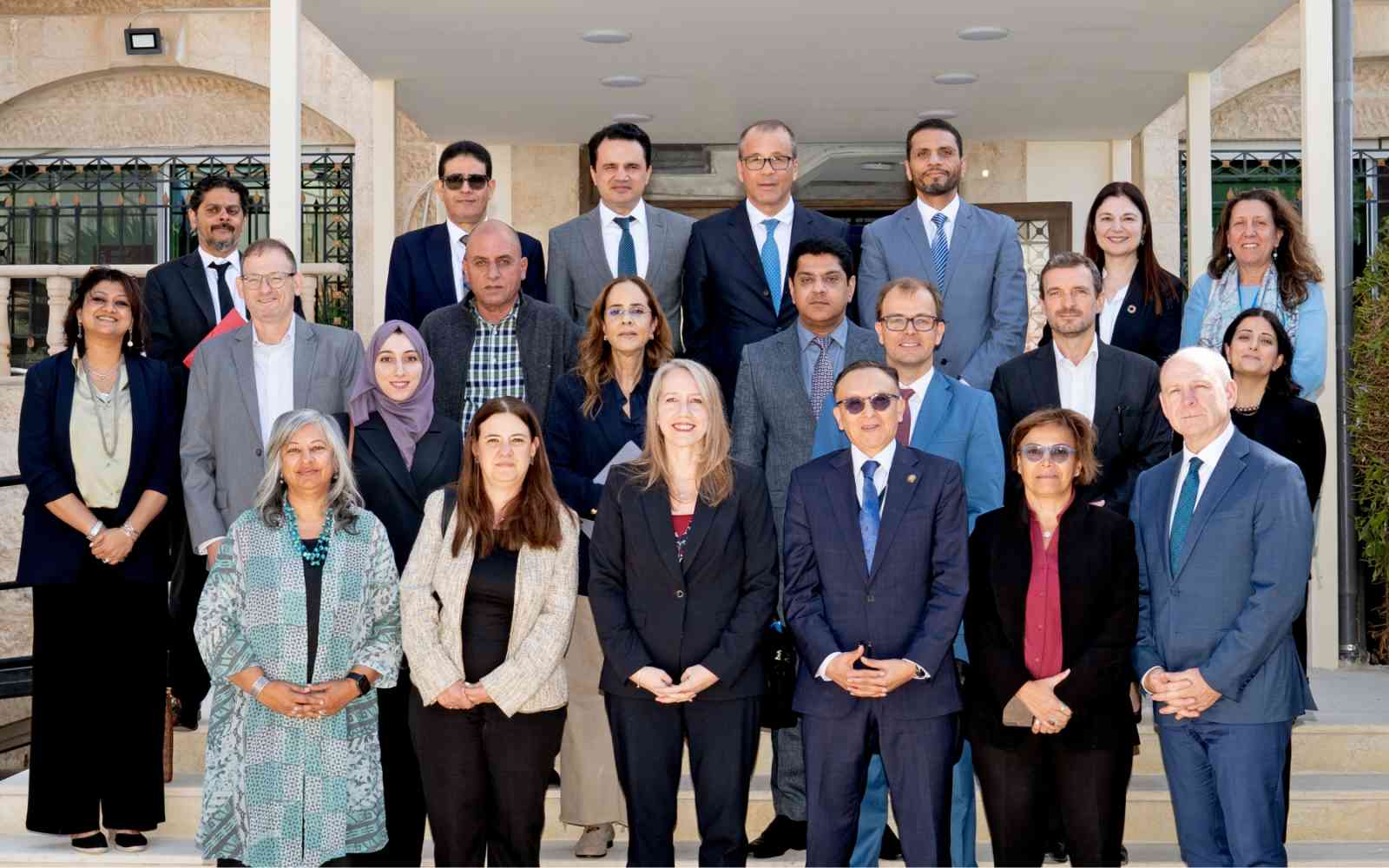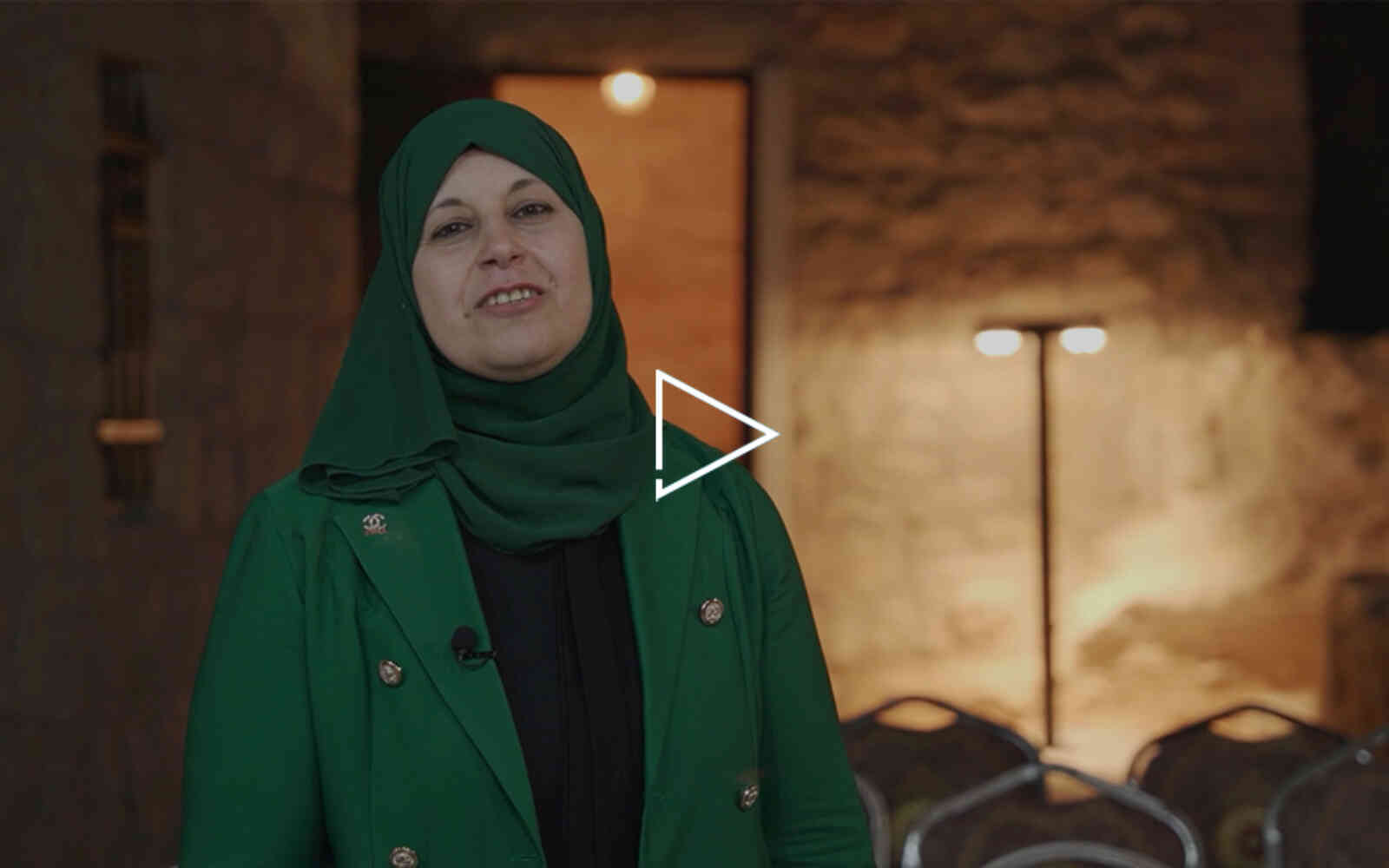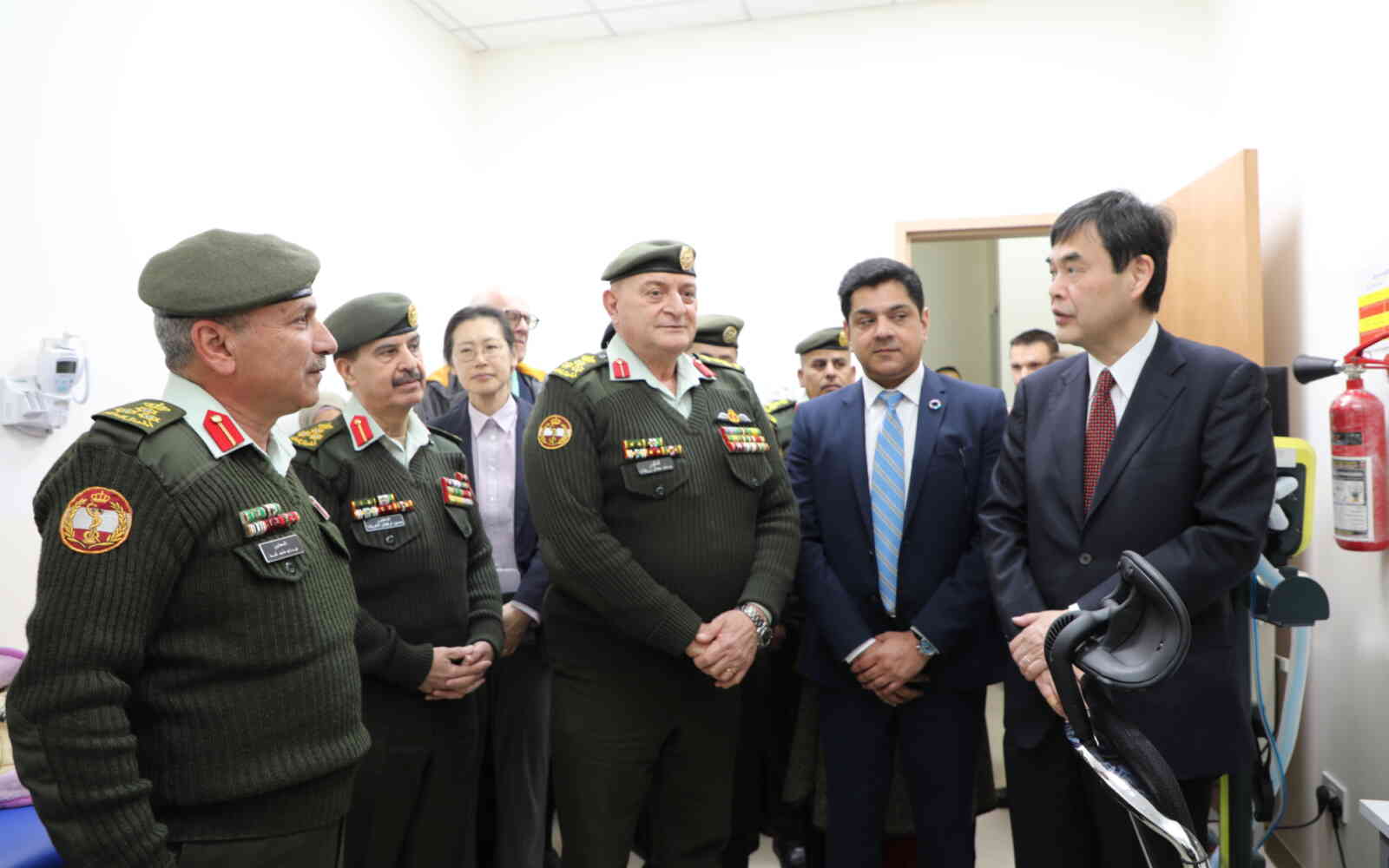The United Nations Office for Project Services (UNOPS)

Improving schools and transforming lives across Jordan
UNOPS, in partnership with KfW Development Bank, is empowering the Jordanian government to provide vital livelihood opportunities for vulnerable populations and improve schools across the country.
Since the start of the Syrian crisis in March 2011, Jordan has hosted around 1.2 million Syrian refugees, placing an immense strain on public services.
The rise in demand for services across critical sectors – including health, education and water – has affected both Syrians and Jordanians living in host communities. The concentration of Syrian refugees in certain governorates has also led to the use of double-shift schools – a system in which two different student populations share the same building and resources across different daily sessions. This puts significant pressure on school infrastructure.
With funding from the Ministry of Economic Cooperation and Development - BMZ through KfW Development Bank and in collaboration with Jordan’s Ministry of Education, UNOPS is working to improve the learning environment in public schools across seven governorates.
The project, throughout its two phases, has provided livelihood opportunities to over 18,000 vulnerable Jordanians and Syrian refugees through cash-for-work initiatives, reaching more than 67,000 household members. Women and people with disabilities make up 36 per cent of workers, and the project fosters improved income stability and enhanced social cohesion between refugee and host communities.
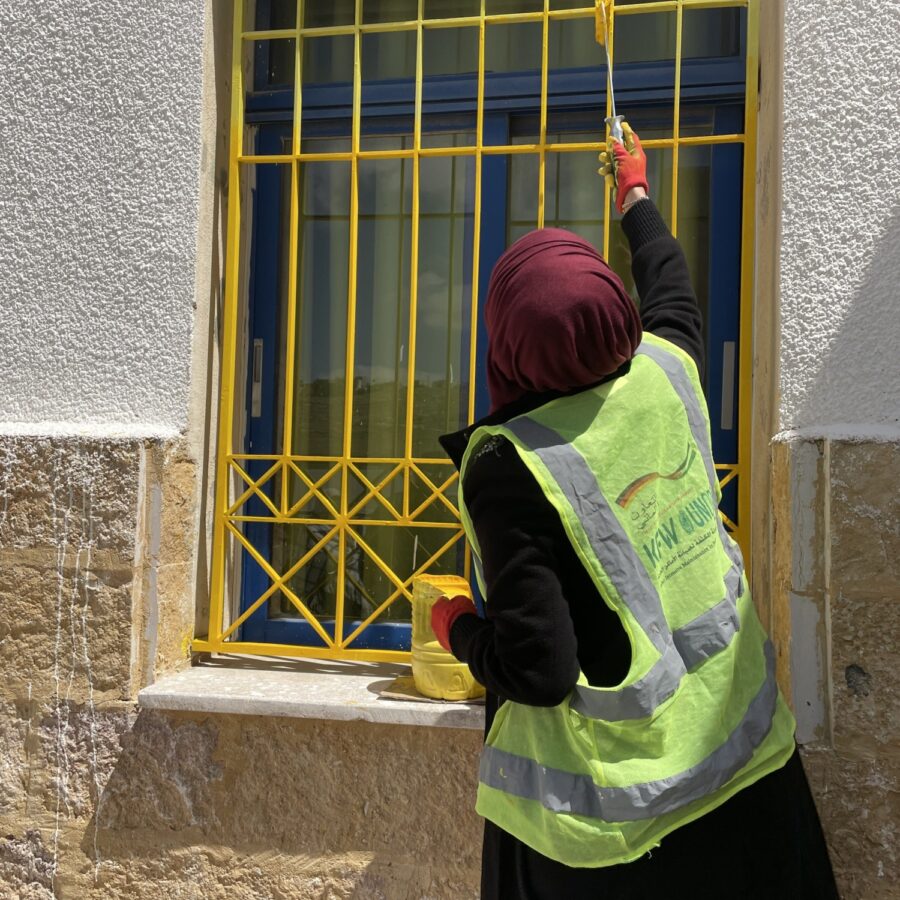
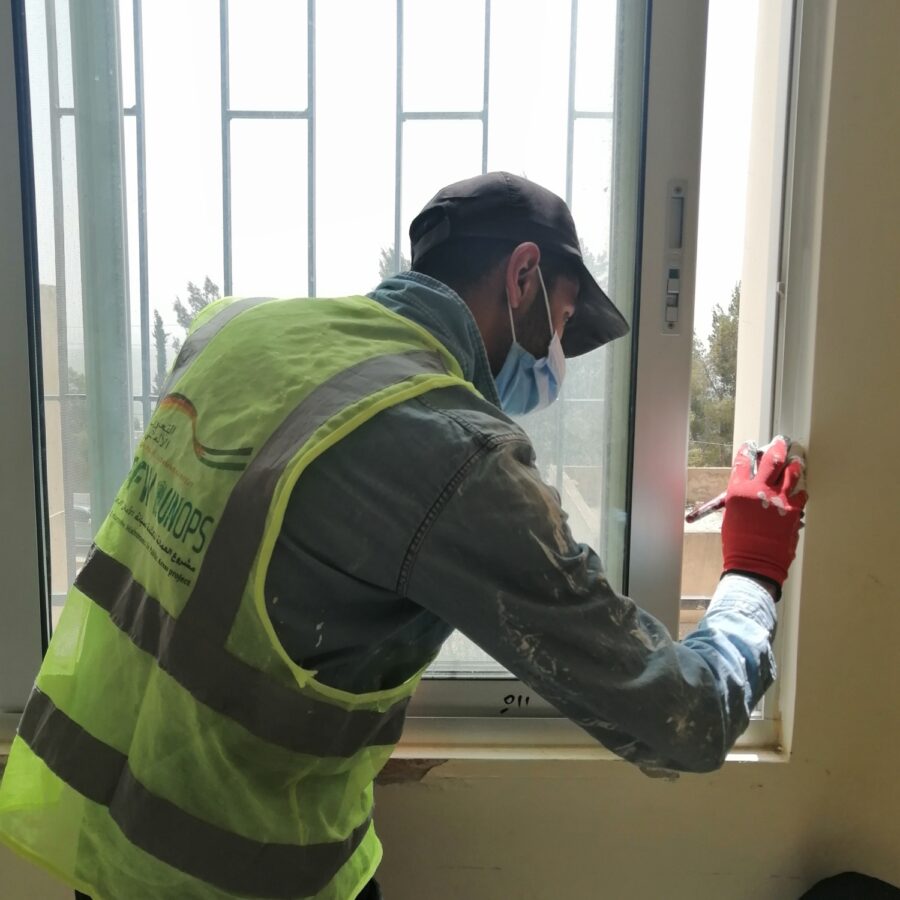
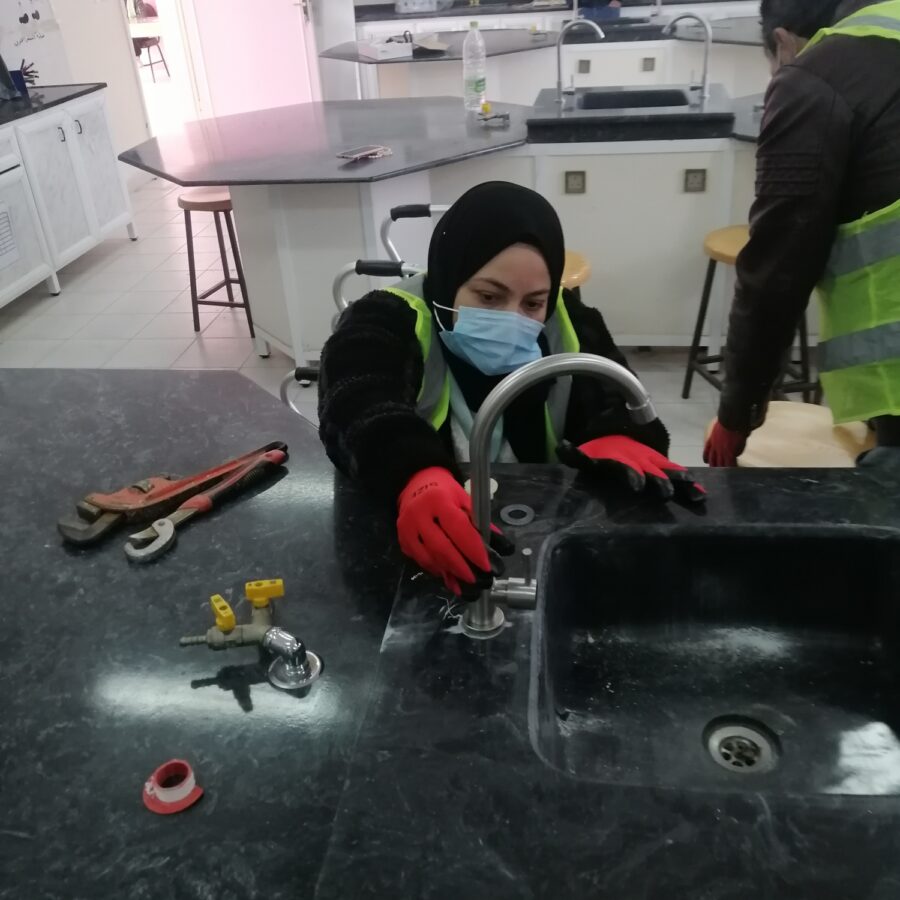
By the end of the project, beneficiaries enrolled will have helped maintain and clean nearly 650 public schools, improving the learning environments for over 170,000 students in Jordan.
“I never imagined that I would be able to handle tasks such as painting and electrical maintenance, but I was able to do so effectively,” said Rahmeh Al-Muhammad, a 20-year old Jordanian woman who worked in the Sweleh Secondary School in Mafraq.
The workers were granted on-the-job training and work experience, giving them the chance to develop their technical and interpersonal skills, and enhancing access to longer term employment opportunities at the end of the project.
This project has not only provided financial benefits to many people but also offered opportunities to learn new crafts that may serve as a source of income in the future.
While bringing Jordanian and Syrian communities together, the initiative supports the most vulnerable people with an income to support urgent needs, such as paying for medical bills, university fees and other household expenses.
"I am so glad that I will help my father in paying for my studying expenses,” said Muhammad Muwaffaq Awad Al-Ezzi, a Jordanian cash-for-work beneficiary.
Set to conclude in mid 2026, the project has been instrumental in tackling both the rising unemployment caused by the Syrian crisis and the urgent need for enhanced learning environments in Jordan’s public schools.
To ensure sustainability of the light maintenance work, the project re-activated Maintenance Committees. Each committee, consisting of local community members and parents of school students, monitors progress and identifies future maintenance needs, essential for preserving infrastructure and functionality.
About the project:










